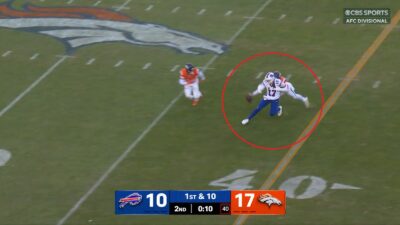
John Isner participated in yet another marathon match at Wimbledon, only this time the result was not what he would have wanted. The American lost to Kevin Anderson in the semifinals at the All England Club in a five-set drainer that included 50 games in the deciding set: 7-6 (6), 6-7 (5), 6-7 (9), 6-4, 26-24.
The match lasted over six and a half hours and was the second-longest match in the tournament’s history behind Isner’s 11-hour victory over Nicolas Mahut in 2010.
Here are some of the wild numbers from the match:
– Lasted six hours and 36 minutes, second-longest in grand slam history behind Isner’s 2010 match vs. Mahut.
– There were 99 total games in the match, which is the longest men’s semifinal in terms of total games played during the Open Era, per ESPN Stats & Info
There were 99 total games in Kevin Anderson's win over John Isner, the longest men's semifinal in terms of total games played during the Open Era.
The previous mark was 90 games when Rod Laver defeated Tony Roche during the 1969 Australian Open semifinal. pic.twitter.com/UEjZzlPaLH
— ESPN Stats & Info (@ESPNStatsInfo) July 13, 2018
– 569 points were played in the match. Anderson won 298, while Isner took 271.
– Isner served 53 aces in the match, giving him a record 214 for the tournament. That broke Goran Ivanisevic’s record of 213 aces at Wimbledon in 2001.
– Anderson broke Isner’s serve four times in the match. Isner did not have his serve broken once in the tournament entering the match.
– Anderson only committed 24 unforced errors in the entire match, compared to 59 for Isner.
The match lasted so long that the other men’s semifinal between Rafael Nadal and Novak Djokovic was suspended after three sets because it was so late in the evening. The match will have to be continued on Saturday, with the winner facing Anderson in Sunday’s final.
You may be wondering at this point why Isner continues to see himself in such marathon matches, especially at Wimbledon. Well, there’s a good reason for it.
Isner is an exceptional server — one of the best ever, if not the best. Excellent servers tend to excel at Wimbledon, where the playing surface is grass, because the ball skids and plays faster. That makes an exceptional server even tougher to break on that particular surface. His service return game, and the rest of his all-around game, isn’t as elite as his serving is, which means he has a tougher time breaking the serve of top opponents.
Think of this analogy: If Isner were a football team, imagine him as having an unstoppable offense that scores a touchdown on every possession. But imagine him also having a defense that can’t stop the opponent. Now imagine the game going to overtime because it’s tied. Only in this overtime, there is no time limit, and they keep playing until one team gets a stop. Also take away field goals and extra points and 2-point conversions and anything else that can affect the score except touchdowns during this overtime. That should give you a good idea about why some of his matches at Wimbledon, where they do not use a tiebreaker in the fifth set, go on forever.













